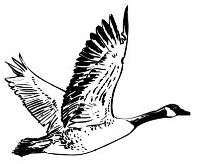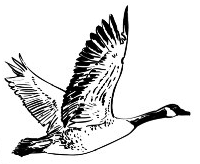|
On holiday a few years ago I read a book by George Monbiot who writes for The Guardian on environmental matters. In it he makes an eloquent plea for the re-wilding of some of our moorland areas. But what drew me was the book’s title: Feral. I wasn’t sure why I was drawn in until I read his definition of ‘feral’ as being “in a wild state, especially after escape from captivity or domestication.” And then the lights came on.... Of course I am a feral priest: called to escape the captivity of the institutional Church many years ago by God, and who has since exercised a ministry mainly in spiritual direction outside its domestication. I remember well how scary it felt to leave. A friend described me ‘as a man about to jump off a cliff’ and so it felt. And yet it also seemed that there was no real alternative. And I remember to my great surprise how no longer being a stipendiary clergyman of the Church of England felt a huge relief. I was free: scared but free! I remember how it seemed as if scales fell from my eyes and I beheld a world in glorious colour which previously had been in black and white. And I realised something of what captivity and domestication had done to me. As a feral priest I’ve had to learn a different set of skills. I’ve learnt to place my trust in God where previously the unstated assumption was that I should trust the institution and its leaders. I’ve learnt to trust God to provide, through the agency of Her children, enough money to survive, a roof over my head, and the means to exercise the ministry to which He was calling me. I’ve also learnt to trust myself, my own intuitive sense of what priesthood means. I often talk about ‘internalised’ priesthood, as the state in which I have learnt to trust that because God has called me to be a priest there must be something essentially ‘priestly’ about me. And if I try to be truly myself then that priesthood will flow out through me without much conscious effort on my part. I am no longer dependent upon the external props of ‘priesthood’ as once I was. Jesus, of course was ‘feral’. He exercised His ministry on the edge of, or outside the religious institution in which He had grown up, and by implication challenged it. So did Francis of Assisi. So do increasing numbers of men and women today: and not just priests, indeed mainly not priests. It is one of the joys of spiritual direction to see someone escape the domestication of what they’ve been taught they should think and do, for the freedom of learning to trust what they deep down know already. There are large numbers of ‘feral Christians’ on the loose, indeed I suspect there are ‘ferals’ of every religious tradition, and in many different countries. Moreover I reckon there are as many ‘ferals’ coming from the opposite direction, seeking a spirituality but not a religion. George Monbiot might be encouraged: the process of ‘feralisation’ is a bigger one than he perhaps imagined. I’m reminded of a phrase which I think Richard Holloway used, who spoke about feeling himself to be part of a church ‘ in exile’. But his phrase doesn’t carry the same sort of energy for me as ‘feral’. To be ‘in exile’ in a Biblical sense carries overtones of being cast out against one’s will, excluded from what feels like home, and sent to a place to which one does not want to go and where one feels a stranger. It’s a place of pain. To go ‘feral’ may include experiencing all of the above, but for me it also means a sense of call into something rather than exclusion from something, and it points to a sense of freedom and delight in what has been newly discovered. It’s a place of precarious, gracious joy. It’s also, somewhat inevitably, a lonely place in which to find yourself, unless you are able to recognise the presence of other ferals, named or not named, around you. On this web-site we hope to raise a modest feral spirituality flag around which people can gather, that will help men and women be aware that ‘feral’ is a positive calling to be proud of; that they may find a sense of fellowship with others, and where questions, wisdom and resources can be shared. PS (19/11/2022): My father was a pacifist and registered as a conscientious objector in the Second World War. He’d been brought up as an Anglican, but not finding the Church of England a comfortable place to be as a pacifist, he joined the Quakers. My mother was brought up an Anglican, and I grew up as an Anglican, knowing him as a Quaker. He never spoke about why he was a Quaker, and I only knew because Mum told me. As I grew up I often tried to get him to tell me his story, but he never would. Then one day, in my mid forties, I visited them on Mothering Sunday as usual, and, sat down after lunch, he began talking about why he’d become a Quaker all those years ago, as if it was a matter he talked about regularly. I was astonished, & so was my mother. I ‘floated’ home feeling greatly blessed. He never spoke to me about it again, ever. I have often wondered what triggered him to talk, and why then? I had no idea. Recently I have begun to wonder if he was, consciously or unconsciously, telling me about a time when he went ‘feral’, although that wouldn’t have been a word that he’d have used. But he spoke of a time when he listened to his own voice rather than the voices of others around him, & acted on it. It cant have been easy, must have been costly, although he spoke lightly of it. I went back and read again my notes of that Mothering Sunday conversation, and noticing that the date was March 25th 2001, the Feast of the Annunciation, I made a connection that I hadn’t before. Some years previously, I too had similarly acted on my own inner voice by stepping out of stipendiary ministry in the Church of England, to go freelance, setting up The Annunciation Trust in the process. So on that Sunday, consciously or unconsciously he was sharing with me that he had done something similar many years previously and was thus giving me his blessing. ‘Feral’ is a calling that he & I share, that binds us. No wonder I floated home He died 20 years ago. I know I have his prayerful support both as a father and as a fellow feral: that I’m walking a path that he began many years previously. Maybe there were others before him who were also, in some way, ‘feral’, that we stand in a long line. Certainly others will come after us. Henry Morgan (Worcester) See also my Going Feral post on the Annunciation Trust website
6 Comments
Geoff
17/9/2022 12:17:20 pm
Well done Henry for trusting the process as you often put it in the past. We trust that that spiritual journeys for those with a feral tone of heart and or mind will find like minded souls along the way!!
Reply
Val King
25/9/2022 12:12:33 pm
Dear Henry, firstly thank you for creating this website and movement, which is resonating with me in many ways. As I sit here on Sunday morning, having once again decided not to go to Mass or Church, I'm very grateful for the insights you have given me in spiritual direction, which have helped to give myself permission to break free of conventional 'churchy' thinking.
Reply
Henry Morgan
11/10/2022 05:20:19 pm
I recognise your concern of lacking the “in person communal experience of Church” & feel it too. Over the years I’ve learnt to see it, not as a problem, but as an opportunity to explore a wider vision of church, and in a number of ways.
Kari
18/9/2022 10:05:56 pm
Henry, this is inspiring, and in synchronicity with the turn up of young adult seekers at my door recently, with no home in established religion, but with an honest longing. I can relate to feral spirituality in my own life, grateful to be given the possibility of encountering kindred spirits through this great initiative. Bless you two coffee drinking ‘ferals’. Kari
Reply
Henry Morgan
19/9/2022 11:54:55 am
Thanks Geoff for your support, and you too Kari: may we drink coffee together one day soon.
Reply
Henry Morgan
19/9/2022 12:06:59 pm
I should have replied more creatively Kari, I’m sorry. Synchronicity and signs are key for some ferals, as ‘words’ from God that we can trust. But its an acquired skill to recognise and learn to trust them. It sounds as if you did well.
Reply
Your comment will be posted after it is approved.
Leave a Reply. |

 RSS Feed
RSS Feed
